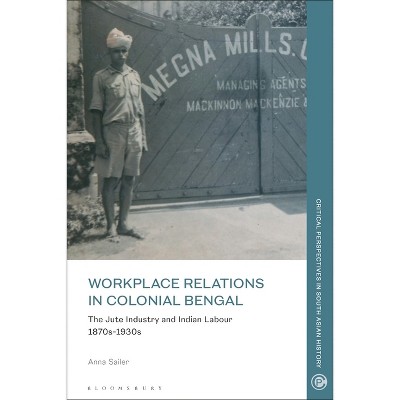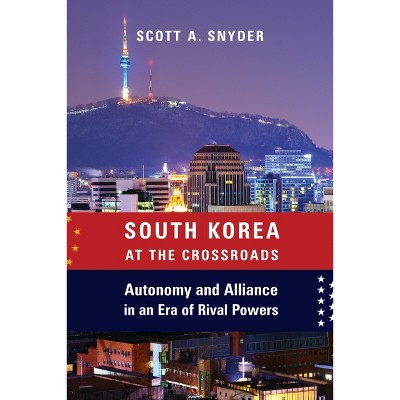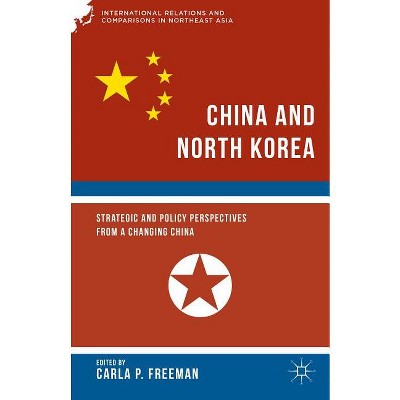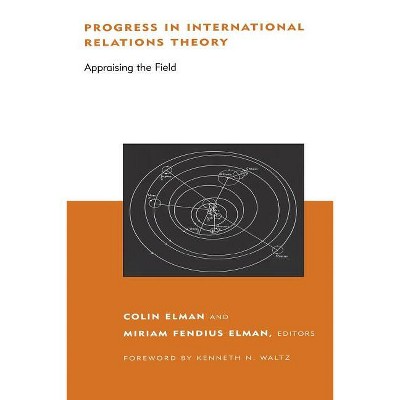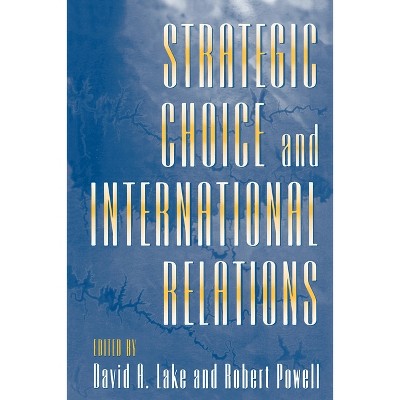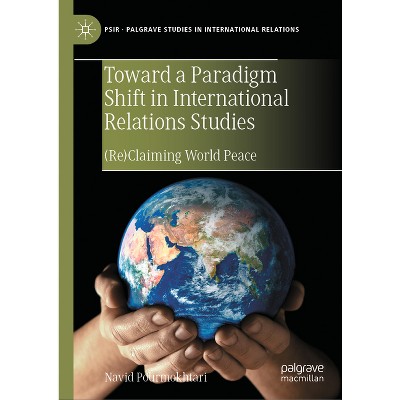Winning the World - (Humanistic Perspectives on International Relations) by Thomas Nichols (Hardcover)

About this item
Highlights
- At the dawn of the 21st century, it should be evident that the Cold War of 1945-1991 was but the first of its kind.
- About the Author: THOMAS M. NICHOLS is Chairman of the Department of Strategy and Policy at the U.S. Naval War College, Newport, Rhode Island.
- 280 Pages
- Political Science, International Relations
- Series Name: Humanistic Perspectives on International Relations
Description
About the Book
At the dawn of the 21st century, it should be evident that the Cold War of 1945-1991 was but the first of its kind. Nichols urges the reader to consider previous resolutions before another such conflict arises. He asserts that the Cold War was essentially a clash of ideologies tempered by the ever-present threat of nuclear annihilation. Victory for the West came quietly, without the final and utterly destructive war often envisioned.
Undoubtedly, the end of the Cold War was a signal victory for the West, and for the United States in particular. Yet Nichols reminds that enemies of the ideals of democracy, capitalism, and liberty abound and will lash out against western states that hold true to them. When this occurs, it will be imperative for the West to remember key lessons taken from the Cold War. Nichols argues that conflicts driven by dissonant ideologies differ from wars fought over resources and territory, and must therefore be fought differently.
Book Synopsis
At the dawn of the 21st century, it should be evident that the Cold War of 1945-1991 was but the first of its kind. Nichols urges the reader to consider previous resolutions before another such conflict arises. He asserts that the Cold War was essentially a clash of ideologies tempered by the ever-present threat of nuclear annihilation. Victory for the West came quietly, without the final and utterly destructive war often envisioned.
Undoubtedly, the end of the Cold War was a signal victory for the West, and for the United States in particular. Yet Nichols reminds that enemies of the ideals of democracy, capitalism, and liberty abound and will lash out against western states that hold true to them. When this occurs, it will be imperative for the West to remember key lessons taken from the Cold War. Nichols argues that conflicts driven by dissonant ideologies differ from wars fought over resources and territory, and must therefore be fought differently.Review Quotes
"In this strongly argued book, Thomas Nichols puts nuclear weapons and ideology back in the center of the Cold War, where they belong, and makes a good case for their continuing importance in today's more confusing world. Even those who disagree will learn and be stimulated by his important analysis."-Robert Jervis Columbia University
"The book is provocative. . . . Scholars of the Cold War will have to contend with his argument that the United States definitively won the Cold War against the Soviet Union, and that although this victory was quiet, it should be heralded."-Monica Duffy Toft Assistant Director, John M. Olin Institute for Strategic Studies Harvard University
?Ideological enemies such as radical Islamic terrorists will fight whether or not the United States chooses to do so. The real lesson from this superb work, which must be read by academics and policymakers alike, is that future, ideologically based foes mused be faced with the hard power of arms and sanctions, as well as the soft power of positive cultural and economic traits, to ensure success for an American-style democracy.?-Perspectives on Political Science
?This challenging and provocative volume is based on two strongly stated ideas. First, the Cold War between the US and USSR was an ideological struggle. Political realists who view the Cold War as a struggle for power misunderstand the real issue. The Soviet Union and the US were fighting over who would have the opportunity to structure the world and what ideology--democracy or communism--would form the basis of that world order. Second, the Cold War was not the last war of its kind, but the first of many to come. Particularly, in the aftermath of September 11, Nichols argues, understanding this premise is crucial....Highly recommended. All levels.?-Choice
?Winning the World paints a compelling portrait of the character of the Cold War, and the author's arguments as to why the West triumphed in that conflict are intriguing and thoughtful. It is well worth reading and, given the current Global War Against Terrorism, its emphasis on the lessons of the Cold War and their importance for the current struggle against highly ideological enemies is timely indeed.?-Comparative Strategy
"Ideological enemies such as radical Islamic terrorists will fight whether or not the United States chooses to do so. The real lesson from this superb work, which must be read by academics and policymakers alike, is that future, ideologically based foes mused be faced with the hard power of arms and sanctions, as well as the soft power of positive cultural and economic traits, to ensure success for an American-style democracy."-Perspectives on Political Science
"Winning the World paints a compelling portrait of the character of the Cold War, and the author's arguments as to why the West triumphed in that conflict are intriguing and thoughtful. It is well worth reading and, given the current Global War Against Terrorism, its emphasis on the lessons of the Cold War and their importance for the current struggle against highly ideological enemies is timely indeed."-Comparative Strategy
"This challenging and provocative volume is based on two strongly stated ideas. First, the Cold War between the US and USSR was an ideological struggle. Political realists who view the Cold War as a struggle for power misunderstand the real issue. The Soviet Union and the US were fighting over who would have the opportunity to structure the world and what ideology--democracy or communism--would form the basis of that world order. Second, the Cold War was not the last war of its kind, but the first of many to come. Particularly, in the aftermath of September 11, Nichols argues, understanding this premise is crucial....Highly recommended. All levels."-Choice
About the Author
THOMAS M. NICHOLS is Chairman of the Department of Strategy and Policy at the U.S. Naval War College, Newport, Rhode Island. He is the author of The Russian Presidency: Society and Politics in the Second Russian Republic (1999), and The Sacred Cause: Civil-Military Conflict Over Soviet National Security, 1917-1992 (1993).





